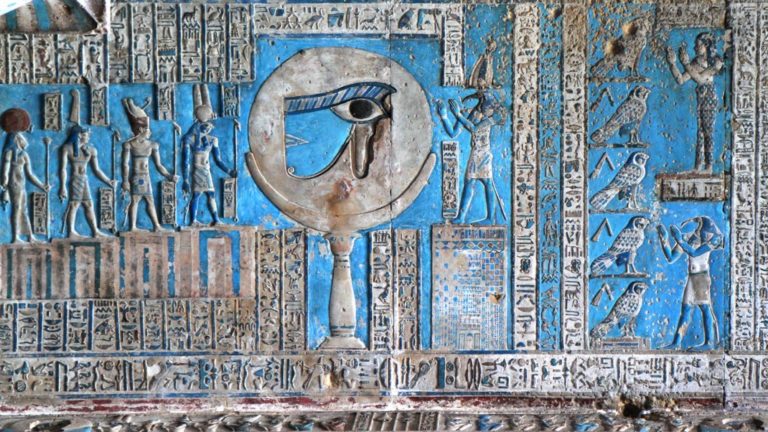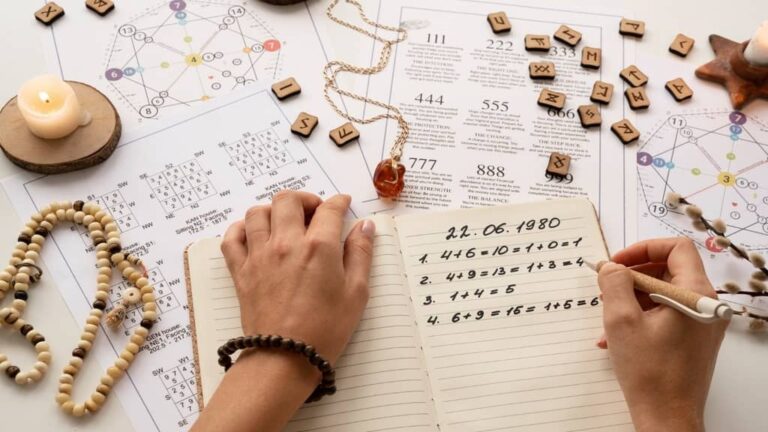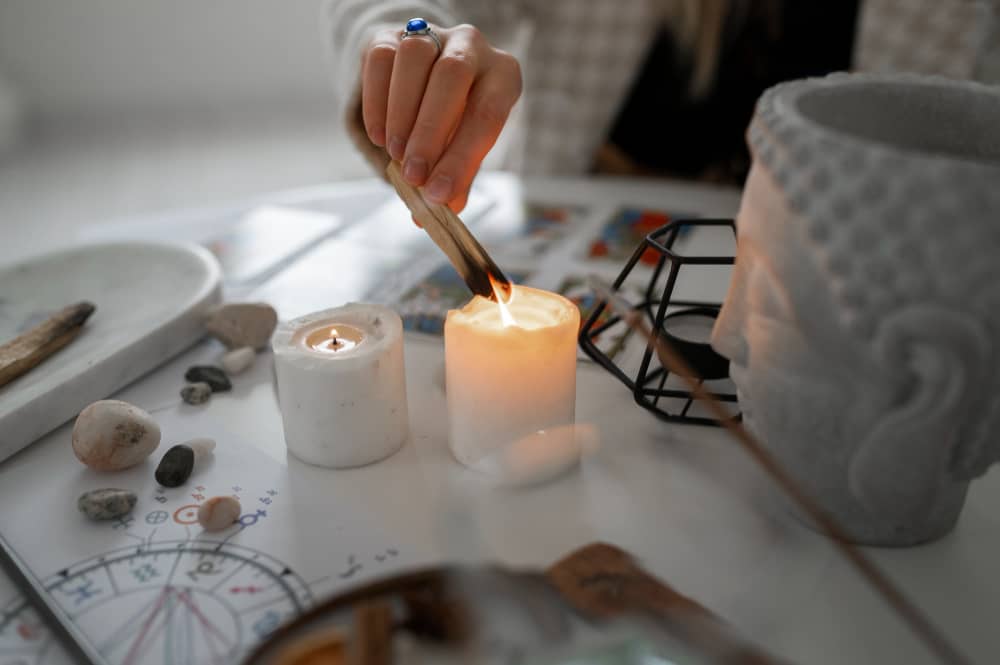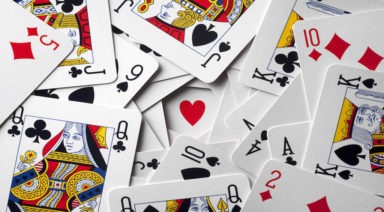Ancient Egyptian Gods

The gods of the ancient Egypt have walked alongside mankind since the beginning of history. They are unique, enigmatic and have fascinated humanity for millennia. The Egyptians were highly secretive when it came to many of their religious and ceremonial beliefs, especially those surrounding magic and the way nature works. Even though we have an immense amount of information about them, much of this has been gathered through the robbing of their graves, giving us a window into a sacred and private part of their society that they never wished to be made public outside of their culture. For this reason, it’s easy to mistake them for a death-fearing, morbid society, but that’s untrue. They loved life and lived it fully.
They danced, drank, wrote poetry, played games, gambled, loved and caroused. Most importantly, they worshipped with an intensity that permeated every aspect of their lives, a quality reflected in their gods.
The Egyptian gods I find the most interesting are reflections of the power of nature itself, anthropomorphized in such a way as to give us keen insight into the people who worshipped them. What follows are some of my favorite male deities from ancient Egypt. (I’ve written about the goddesses of ancient Egypt as well.) It’s important to note that a male deity was in no way superior to, nor more important than a female deity. Each had their importance and was honored completely for their specific contributions. It was normal for a male deity to be sensitive, just as it wasn’t unusual for a female deity to be a mighty warrior.
One of the interesting traits of Egyptian gods and goddesses is that most had human bodies with animal heads.
I don’t believe that the majority of Egyptians actually believed that there was a god somewhere with the head of a dung beetle and the body of a man, but the form was a convention that defined the energy in a way that all Egyptians would understand. It was a brilliant way of showing the forces of nature represented by their gods. By studying creatures in their habitats, the understanding of an elemental force on our planet could be gained. From there, it was a short leap to believe that they could then be sought out for protection and aide. In return, it was natural to deem those totemic animals as being sacred, as the incarnations of those forces of nature and surrogates of the god-forms that rule them.
It also bears mentioning that the ancient Egyptian religion is far from dead. Devotees worldwide maintain faithful alters to Isis, Thoth, Bastet and other members of the Egyptian pantheon. There are entire societies devoted to the observance of the ancient gods, their rituals and ways. They follow the ancient calendars, celebrate the celebrations and embrace an older way of worship. It works for them.
What follows is by no means a thorough representation of the gods of ancient Egypt, but are some of my favorites.
Ptah
This ancient deity is often given credit as one of the primary creators of almost everything. What goes into creation? What would it entail? Imagine that the time has come to create lions. As the creator, you envision the basics of what a lion is, maned, powerful, and so on. From there, it gets more precise, imagining what every lion ever will be, from the beginning of the species to its extinction. Every single detail, every hair, muscle, tooth, claw and behavior is seen, not only of the prototype lion, but for every lion that will ever live. This information is meticulously held in the mind, down to the capillaries. All lions that will ever exist and all their intimate details are seen at once. Only in that moment is the act of creation performed by Ptah pronouncing their name. Ptah did this for everything that exists, and ever will exist. I’ve always thought that once everything was created, he had nothing left to give. He’s shown as a man, understandably wrapped shroud-like.
Horus
Horus is one of the oldest of Egyptian deities. This falcon headed god is popular in ancient Egyptian motifs, and The Eye of Horus has been a symbol of protection and strength for millennia as a representation of the power of the sun. Although a very old god, myths of Horus and his birth to Isis, by his dead father, Osiris, eventually became standard.
He represents the overcoming of darkness by light. From his incarnation as a child on the eastern horizon and hope given by the dawning of a new day, to the ferocity of the noonday sun, a cleanser and purgative of the unclean, to the aging Ra, the setting sun whose very lifeblood stains the twilight sky as a reminder of the sacrifice made for us by the Sun daily, he represents the power of good over evil. His night hours are spent traversing the dangerous underworld, battling the forces of darkness until once again, renewing the hope of another day. The reason for his popularity is obvious; he represents eternal hope and good over evil. The king of Egypt was said to be The Living Horus, an avatar of the god, himself.
Osiris
Osiris is a representation of the forces of civilization upon humankind. His was a gentle energy, one filled with calm love and a desire to ease the burdens of his beloved subjects. Agriculture, irrigation, many of the fine arts and a love of peace are all hallmarks of Osiris. He was murdered by his brother, Set. Miraculously resurrected by his wife, Isis, with the help of Anubis and Thoth, his son Horus was conceived, avenging his father’s overthrow and saving the world from the forces of chaos. After his death, Osiris did not perish. He became the Lord of the underworld, a joyous place full of light, life and all the comforts of the living world. The greatest fear of the Egyptians wasn’t death, as much as it was the possibility of not continuing the life that they loved so much. Osiris became a salvation from eternal sleep and in death, the deceased became one with Osiris. Such is the result of the understanding of our mortality.
Set
The brother of Osiris, Set was a representation of the natural forces of chaos, uncivilized humanity and the blind power of nature. I’ve always thought that Set despised the softening of humankind under the benevolent rule of his brother. Like raw nature, Set could be unpredictable and destructive. Whether jealous, or misguided, he conspired to murder Osiris at a party held in his brother’s honor, thus putting into motion one of the most thought-provoking myths of any time. Without Set, there would’ve been no afterlife and only darkness would’ve reigned, once this journey is over. Interestingly enough, Set was not reviled for his part in this drama. In fact, kings were named after him and he was worshiped throughout the history of ancient Egypt. Like nature, he was a necessary part of the bargain and gave understanding to those who sought the knowledge he possessed.
Thoth
When it comes to defining what it means to be human, we must think of Thoth. Thoth is much more than a lunar deity. He came to represent the very essence of intelligence, thought and wisdom. He was ingenious, clever, an author of magic and ritual, the god of medicine, inspiration and eloquence, defined the 365 day calendar, understood the movements of the planets, gave Horus his eye during the monumental battle with Set, and along with his brother, Anubis, devised the very magic and rituals that brought his slain uncle back to life. Those same rituals and spells were used throughout ancient Egyptian culture in the form of a book of magical formulae designed to allow the possessor safe passage to the afterlife. This book is known as The Book of the Dead, or more precisely, The Book of Coming Forth by Day, a more optimistic way of looking at things.
Thoth was eventually associated with the gods Mercury and Hermes. His epithet was “Thoth, Ur, Ur, Ur” or Thoth Thrice Great. In Greek, using the Grecian form of the deity, it translated to Hermes Trismegistus, not only being the translation of Thoth’s title, but also representing the powerful Triad of the three gods of communication (Thoth, Hermes and Mercury) and the mind. The influence of Thoth and his worship cannot be understated. The sacred Ibis and the sacred baboon are the animals connected to Thoth and he was most usually portrayed as a man with the head of an ibis, holding a scribe’s pallet and a reed for writing. The invention of written language changed the direction of humanity. It gave us history and continuity of thought, allowing us to pass along the ideas of others for millennia, the true definition of eternity.
Anubis
Anubis was the brother of Thoth. This jackal, or dog, headed deity perhaps captures the imagination more than any other Egyptian god. His was the realm of the mysteries. He was not only a protector of the departed and their tombs, but also the god of embalming and mummification, the prerequisite for the continuation of the soul into eternity, according to Egyptian doctrine.
I’ve always found Anubis to be wonderfully mysterious. Anubis was important as a keeper of the mysteries. He was also the Psychopomp, the entity designated to guide us from the realm of the living to the land of the dead. He took the departed by hand into the hall of judges, where their hearts were weighed against the feather of Ma’at, the goddess of truth. If the aspirant to eternity passed the interrogation of the 42 judges, Anubis ushered them to meet Osiris. Once accepted, an eternity of joyous life was their reward. He is a natural deity of powerful magic and work on other planes.
Perhaps the most famous representation of Anubis is the breathtakingly beautiful statue found in the tomb of Tutankhamen. Like a faithful and ever vigilant watchdog, the statue lies alertly waiting for anyone who dares to disturb the eternal slumber of the king. I can only imagine that it was unnerving for Howard Carter and his group to see that image for the first time, as a beam of light pierced the darkness of millennia and exposed its beauty. Modern representations of Anubis, showing him muscular and massive, completely miss the point of his gentle but powerful nature. He reassures and guides during the most uncertain time possible.
Kheper
Kheper was the god of becoming, evolution and being. A symbol of creation and of the persistence of existence, his image was the scarab beetle, an insect that lives by feeding on nutrients left in animal dung. To understand this deity better, I suggest you study the lifecycle of the scarab. You’ll come to understand much about the ancient Egyptians, as well as their uncanny ability to deliver complex concepts in symbolic forms. If you search deeply enough, you may also discover a hint as to what the pyramids might’ve been and why they were designed the way they were.
There are numerous other fascinating deities in the ancient Egyptian pantheon, but further discussion is beyond the scope of this article. I urge you, gentle reader, to not only do your own research, but to also do your own thinking.
Far from being ignorant or overly superstitious, the ancient Egyptians were thinkers and philosophers. Above all, they loved being who they were and loved their gods, for it was they who protected them and ensured the quality of their lives, then and forever.
Until next time, I wish you all peace and love.
What Spiritual Portals Are and How They Influence Your Energy

Spiritual portals are moments of high frequency in which the Earth and the collective consciousness experience a vibrational opening. These specific dates support processes of transformation, energetic cleansing, and deep spiritual connection. In this article, we explore what these portals are, how they work, and how you can align with them to enhance your well-being and personal evolution.
Table of Contents
- What Are Spiritual Portals?
- Key Dates of the Year When Spiritual Portals Open
- Beyond Repeating Numbers: Other Portals Throughout the Year
- How to Make the Most of Spiritual Portals
- What Time Do Spiritual Portals Open and Close?
- 7 Places on Earth That Act as Energy Portals
What Are Spiritual Portals?
Spiritual portals are moments of vibrational alignment in which the flow of energy between subtle planes and the physical plane intensifies. They often coincide with repeating numerical dates—such as 11/11 or 12/12—and significant astrological movements. During these periods, many people experience heightened sensitivity, mental clarity, or emotional openness, as the available energy activates internal processes of transformation.
Although these are not visible phenomena, their effect can be felt on physical, emotional, and spiritual levels. Some people notice changes in sleep patterns, deep introspective states, or a stronger connection with their intuition. Others perceive these portals as opportunities to close cycles, release blockages, and plant new intentions from a more conscious state.
In the series Quantum Effect, available on Gaia, the show explores how energy influences both individual and collective consciousness. Through this perspective, it becomes clear that we live in a vast energetic ocean where our decisions and vibrational states open different possibilities of experience. This understanding is especially helpful for comprehending the impact of spiritual portals—also known as energy portals or sacred portals—and how to use them consciously to elevate your vibration and awareness.
Key Dates of the Year When Spiritual Portals Open
Spiritual portals appear on specific dates that repeat numbers or vibrational patterns, such as 01/01 or 11/11. These moments are seen as opportunities to raise your personal frequency, release burdens from the past, and plant new intentions. Below are the 12 main portals of the year and the type of energy associated with each one.
- 01/01: Marks the beginning of the annual cycle and represents an opening to new opportunities. It’s an ideal time to set clear intentions and visualize your next steps.
- 02/02: Connects with duality and cooperation. Supports the reconciliation of opposites and the strengthening of personal relationships.
- 03/03: Its energy is linked to creativity and personal expression. A favorable day to start artistic or communication-based projects.
- 04/04: Reinforces stability and order. Encourages building solid foundations for long-term projects and organizing everyday life.
- 05/05: Represents change and transformation. Invites you to let go of the old and open to renewed experiences more aligned with your personal purpose.
- 06/06: Associated with harmony and balance. Encourages connection with family, compassion, and the search for inner peace.
- 07/07: Connects with spirituality and intuition. It’s a day to meditate, go deeper into self-knowledge, and listen to your inner voice.
- 08/08 (Lion’s Gate Portal): One of the most powerful portals of the year, aligned with the Leo constellation and the star Sirius. It’s associated with abundance, expansion, and the activation of personal energy.
- 09/09: Its vibration is connected with the closing of cycles. An ideal time to release emotional burdens and bring unfinished processes to completion.
- 10/10: Represents fulfillment and rebirth. Offers the possibility to begin a new phase with greater clarity and determination.
- 11/11: Considered the ultimate spiritual portal. Its energy amplifies the connection with higher dimensions and the opening of consciousness.
- 12/12: Marks the energetic closure of the annual cycle. A time to integrate lessons and prepare for the new frequency of the year ahead.
Beyond Repeating Numbers: Other Portals Throughout the Year
In addition to spiritual portals that open on repeating dates, there are other times of the year when the energy of the planet and cosmos supports significant vibrational openings. These portals are associated with astronomical phenomena and movements in nature that directly impact collective consciousness.
- Solar eclipses: Considered powerful portals of initiation and revelation. Their energy drives deep changes and the manifestation of new realities.
- Lunar eclipses: Linked to the closing of cycles and emotional release. Help let go of the past and create space for the new.
- Equinoxes (March and September): Represent the balance between light and darkness. These are portals of renewal, inner balance, and harmony with nature.
- Solstices (June and December): Act as gateways of transformation. The summer solstice enhances vitality and expansion, while the winter solstice invites introspection and the planting of intentions.
- Planetary alignments: When two or more planets meet in conjunction, a unique energetic flow opens. These alignments support the expansion of consciousness and connection with higher realms.

How to Make the Most of Spiritual Portals
Connecting with the energy of spiritual portals is an opportunity to align personal intention with the frequency available on those days. The key lies in preparing consciously—creating space for reflection, inner openness, and the kind of energetic work that resonates most with you.
One of the most common ways to engage with these portals is through symbolic rituals, such as lighting candles, writing intentions in a journal, or working with crystals that enhance the vibration. These practices help focus the mind and direct energy toward clear goals, turning the portal into an ally for transformation.
Meditation, energy baths, and connection with nature are also recommended as ways to integrate the available energy. These actions support emotional clearing, mental clarity, and strengthening of the personal energy field, allowing the portal to act as a catalyst for well-being and spiritual evolution.
What Time Do Spiritual Portals Open and Close?
Spiritual portals do not activate at an exact hour, nor do they function like a switch that turns on and off. Their energy begins to be felt days before the marked date and often lingers even after it has passed, creating a vibrational field that accompanies the transition.
This means there’s no need to focus on a precise minute to connect with the portal. What matters is to tune in to the energy of the period, since its influence unfolds gradually and can be embraced flexibly depending on your personal needs.
7 Places on Earth That Act as Energy Portals
Beyond portals linked to dates and astronomical events, there are places on Earth considered centers of high energetic vibration. These natural and ancestral sites are known for generating sensations of spiritual connection, expanded awareness, and inner healing.
Throughout history, cultures from around the world have regarded these locations as sacred sites, used for rituals, pilgrimages, and spiritual practices. Today, many people visit them to experience their transformative influence and open themselves to the energy they emanate.
- Machu Picchu (Peru): Ancient Incan city in the Andes, considered a center of ancestral wisdom. Its energy is associated with cosmic connection and spiritual expansion.
- Giza Pyramids (Egypt): Ancient monuments aligned with specific constellations. They are seen as gateways linking Earth’s energy with cosmic forces.
- Mount Shasta (United States): Sacred mountain in California connected to legends of ancient civilizations. Recognized as a portal for spiritual transformation and inner awakening.
- Stonehenge (England): Megalithic monument aligned with the solstices. Believed to channel and concentrate cosmic energy onto the Earth.
- Uluru (Australia): Also known as Ayers Rock, this is a sacred place for Aboriginal peoples. It represents a spiritual power center and connection with creation.
- Lake Titicaca (Bolivia–Peru): Considered a portal of energetic renewal and spiritual awakening. Believed to be a point of union between dimensions.
- Mount Kailash (Tibet): Sacred mountain for Hindus, Buddhists, and Jains. Regarded as a spiritual axis of the world and a center of deep purification.







